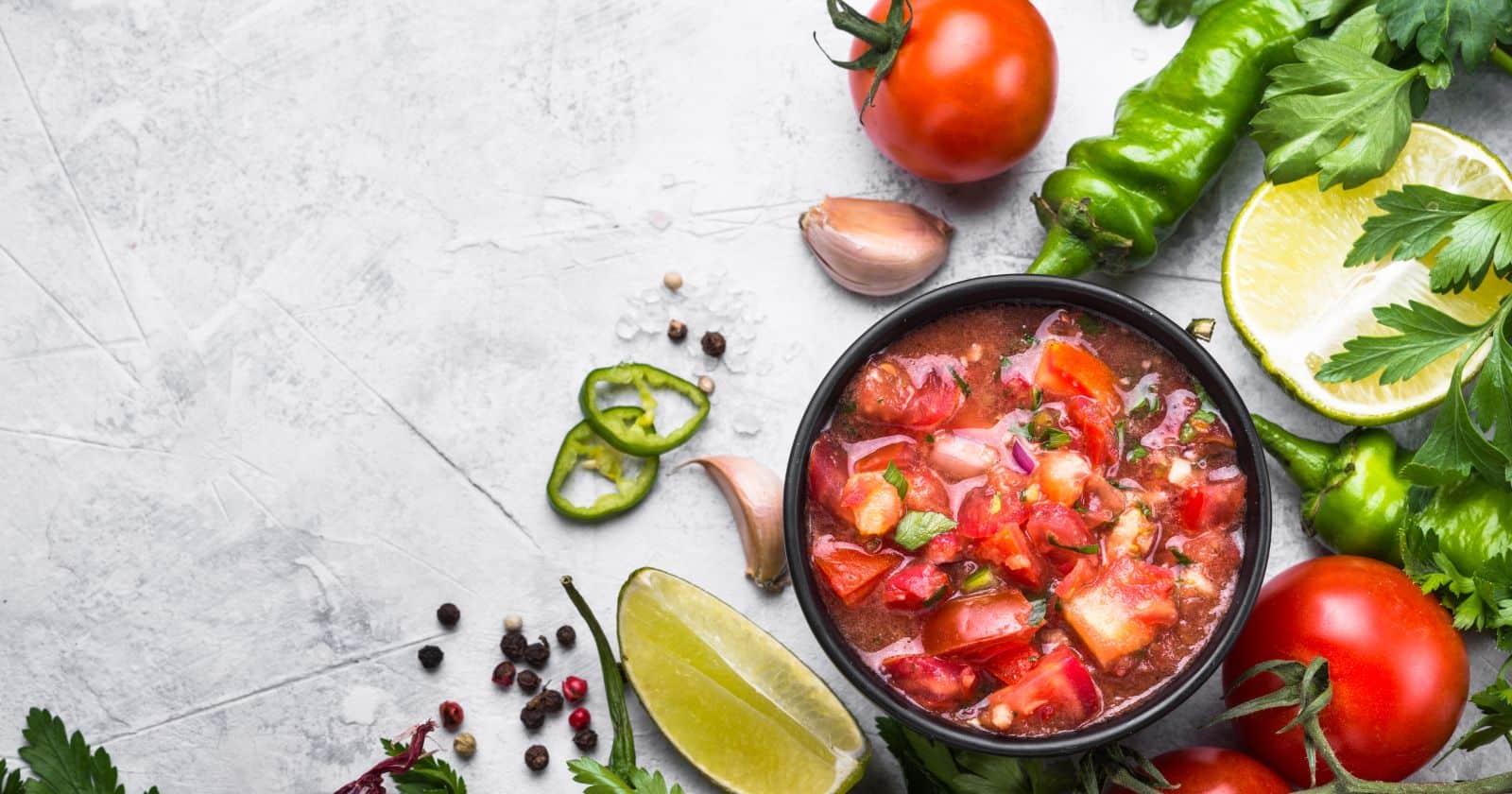Nothing ruins a meal like that miserable swollen bloating feeling after eating. If you’ve ever enjoyed some spicy wings or hot salsa only to regret it later, you know what I’m talking about. Hot sauce may deliver bold flavor, but it can also deliver uncomfortable digestion issues for some folks.
While hot sauce fanatics may happily douse everything in sight with Sriracha, those with sensitive stomachs may pay for it later with gassiness and abdominal discomfort. But why does hot sauce inflame digestive symptoms for some but not others? And is it possible to enjoy the heat without the bloat?
As with many aspects of nutrition and health, responses to hot sauce can vary quite a bit between individuals. The key is finding your personalized tolerance level. With some care and moderation, the benefits of flavorful heat don’t have to come at the cost of digestive distress.
Let’s take a closer look at why hot sauce may spell trouble for some bellies, from potential culprit ingredients to simple overindulgence. Arm yourself with the facts so you can keep enjoying hot sauce without the unwanted airiness afterwards. A little planning could help you Avoid the bloat and savor the burn.
How Hot Sauce Can Lead to Bloating
Hot sauce contains a compound called capsaicin that gives it the signature spicy kick. Capsaicin stimulates nerve endings in your mouth and throat, which can trigger pain receptors, inflammation, and an increase in stomach acid production. This surge of acid is meant to help your body digest the spicy compounds. However, it may also irritate the lining of your digestive tract, especially if you have a sensitive system or consume very spicy foods often.
The ingredients themselves may also play a role. Onions, garlic, beans, and other ingredients commonly found in hot sauces can cause gas and bloating for some individuals. The high sodium content, added during processing for flavor and preservation, may also lead to water retention and temporary abdominal distention.
Tolerance Levels Vary from Person to Person
The effects of hot sauce on digestion can vary widely depending on your individual tolerance. If you are not used to regularly eating spicy foods, even a small amount of hot sauce may overwhelm your system and cause discomfort. Those with chronic digestive conditions like IBS are also more prone to adverse effects.
On the other hand, avid spicy food lovers may be able to handle more heat without issue. Their mouths and digestive tracts become accustomed to capsaicin over time. This allows them to comfortably enjoy sauces that others might find intolerable.
Strategies to Prevent Hot Sauce-Related Bloating
If you are prone to bloating from hot sauce, don’t despair. There are some simple techniques to allow you to keep enjoying the heat without the unwanted side effects:
- Read labels carefully. Avoid sauces with ingredients you know trigger gas or indigestion. Onions, garlic, beans, and excess sodium are common culprits.
- Start slowly. If you are new to hot sauce, build up your tolerance gradually to allow your body to adjust.
- Limit portion size. A dab of hot sauce can provide flavor without causing distress. Avoid consuming excessive amounts, especially right before bed.
- Drink plenty of fluids. Staying hydrated can help dilute stomach acid and move food efficiently through your system. Water is best.
- Add probiotics. Consuming probiotic foods like yogurt, kimchi, and kefir may help balance digestive bacteria and reduce bloating.
- Eat slowly and mindfully. Don’t rush through meals slathered in hot sauce. Allow your body time to adapt to the
spice level.
The Potential Health Benefits of Hot Sauce
Despite the risks of bloating, hot sauce actually offers several potential health upsides when consumed in moderation. The capsaicin provides antioxidants and anti-inflammatory effects, and may support:
- Weight loss: By boosting metabolism and dulling appetite slightly, hot sauce may aid weight management.
- Heart health: Improving blood flow and cholesterol levels to reduce cardiovascular risks.
- Pain relief: Dulling nerve pain signals, helpful for conditions like arthritis.
- Cancer prevention: Laboratory studies show capsaicin may slow cancer cell growth and tumor metastasis.
- Blood sugar control: Lowering insulin resistance and risk for diabetes through improved glucose metabolism.
These benefits highlight why including some
Tips for Enjoying Hot Sauce without Discomfort
Here are some final tips to allow you to keep hot sauce in your life without bloating or indigestion:
- Mix it into dishes, rather than pouring it directly over food. This dilutes the
spice level slightly. Soups, stews, and grains work great. - Pair it with healthy fats. Ingredients like avocado, olive oil, nuts, and yogurt help buffer acidity.
- Avoid consumption on an empty stomach, as this can exacerbate acid buildup and irritation.
- Wait for hot foods to cool slightly before adding hot sauce, so you don’t overwhelm your mouth and digestive tract.
- Stick to trusted, high-quality brands instead of super-spicy novelty sauces, which often use extract for heat instead of natural peppers.
- Limit other gas-producing foods like beans, cruciferous vegetables, and carbonated beverages when enjoying hot foods.
- Take an over-the-counter acid reducer like Tums if you overindulge and feel very uncomfortable.
With some care and moderation, you can keep hot sauce in your life and on the table. Pay attention to your personal tolerance levels, use natural heating methods, and balance the heat with other healthy ingredients. This allows you to safely enhance meals with flavor and
FAQ: Does Hot Sauce Make You Bloated?
Can I build up a tolerance to hot sauce so it doesn’t cause bloating?
Yes, you can build up a tolerance over time if you gradually increase your intake. Start with small amounts of milder hot sauces and work your way up to spicier varieties. This allows your mouth, digestive system, and gut microbiome to adapt.
Is bloating from hot sauce dangerous or just uncomfortable?
For most people, hot sauce-related bloating is just uncomfortable and temporary. However, if you experience severe abdominal pain, vomiting, or are unable to pass gas, see your doctor. Intense reactions can rarely indicate a medical issue requiring treatment.
What ingredients in hot sauce cause the most bloating?
Onions, garlic, beans, and excess sodium are common bloat-inducing ingredients. The capsaicin can also stimulate acid production. Check labels and avoid hot sauces with problematic ingredients based on your personal sensitivities.
Can hot sauce cause bloating even if I don’t taste “heat” from it?
Yes, even small amounts of capsaicin can stimulate your digestive system, especially if you have a low tolerance. Bloating may occur before your mouth feels any spicy sensation. Start with small amounts of mild hot sauce.
Will taking probiotics help prevent hot sauce-related bloating?
Possibly. Probiotics may improve digestion and reduce gas by balancing gut bacteria. Look for brands with strains like lactobacillus or bifidobacterium. Eat probiotic foods like yogurt, kimchi, and kefir too.





